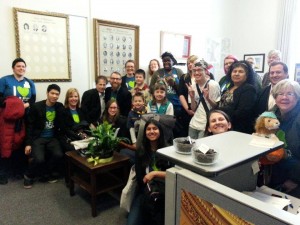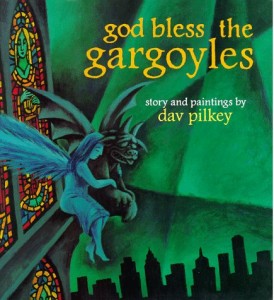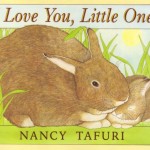 Psychology
Psychology  No Comments
No Comments The Slowest Spring
It’s May 19th, and it’s rainy with temperatures in the 50s. This is par for the course this spring—only the lightning and thunder suggests that it’s any different than March. The lilacs are only just beginning to bud; the haze of foliage on the trees is still more yellow than green.
Winter was brutally rough this year, setting records all over Minnesota for the longest stretch of below-zero days. Despite Vitamin D and a sunlight lamp, seasonal depression swept me under hard. I was home practically every night, going to bed early and waking up exhausted, only to sleepwalk through the day and do it all again. People asked me what would make it better; I replied, “The beginning of legislative session.”
 And it did help, since I’m a wonky weirdo. Working to help pass the Safe and Supportive Minnesota Schools Act to provide strong anti-bullying legislation for our state’s kids was hard but familiar and empowering work, with some of my favorite people on the whole planet. I pitched in on the minimum wage increase and expungement reform too. I had places I was needed and appreciated, and my calendar was full and fulfilling.
And it did help, since I’m a wonky weirdo. Working to help pass the Safe and Supportive Minnesota Schools Act to provide strong anti-bullying legislation for our state’s kids was hard but familiar and empowering work, with some of my favorite people on the whole planet. I pitched in on the minimum wage increase and expungement reform too. I had places I was needed and appreciated, and my calendar was full and fulfilling.
But as those campaigns wound down, I felt myself begin to fray and flail again, instead of staying revived. At first, I told myself it was just my health that seemed to demand more naps and fewer commitments. But my temper grew as short as my endurance, and my motivation guttered like a bad candle that burned down too fast. Upsetting things that would’ve normally blown through like a storm wrecked me for hours and days. Things I’d looked forward to for months–like winning major legislative victories–only gave me a short burst of pleasure. The only pastime I engaged in was reading, and I recognized that I was using it for refuge more than relaxation.
So here I am, admitting the thing right as it’s happening to me: I have relapsed into depression. Yes, it’s been worse, but it’s not exactly good. Yes, I’m doing what I should be: taking meds, making appointments. No, I don’t have a talk therapist—my ability and tendency to talk over and around my feelings makes the exercise hardly worth the cost.
And yes, it’s improving with the weather. That is to say, so slowly as to be imperceptible. In the meantime, I’m planning, planting, dancing, and picking up my obligations again. The hardest thing right now is not to fall hard at the least little resistance I encounter. It’s also not easy to move out of the myopic fogbank I’ve steered into. I haven’t felt creative for months because I literally cannot see beyond my immediate circumstances, and even the smallest creative endeavor requires a bit of vision. I’m working hard to overcome that perspective, but support is always appreciated.
And in the meantime, I’m trying to remember that spring is coming, slowly but surely.



